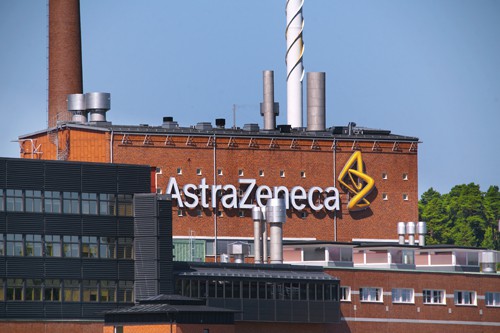
AstraZeneca’s Tagrisso cuts the risk of EGFR-positive lung cancer patients developing brain metastases, according to new data revealed by the company on Saturday.
Tagrisso (osimertinib), a third-generation EGFR inhibitor, demonstrated a clinically meaningful improvement in central nervous system (CNS) disease-free survival (DFS) in the treatment of patients with early-stage EGFR-positive non-small cell lung cancer (NSCLC) after complete tumour resection.
The results, from the phase 3 ADAURA trial, were presented at the 2020 European Society for Medical Oncology (ESMO) virtual congress and also simultaneously published in The New England Journal of Medicine.
These detailed results showed that fewer patients treated with Tagrisso in the adjuvant setting had recurrence event or death compared to placebo – 11% and 46% respectively.
For those patients whose cancer did recur, 38% had a metastatic recurrence, compared to 61% of patients on the placebo arm. In addition, Tagrisso treatment also reduced the risk of CNS recurrence or death by 82%, although median CNS DFS was not reached yet in either arm of the study.
“The striking new data shows that Tagrisso prevents the development of brain metastases in patients with early disease and reinforces that this medicine is truly transformative for patients with EGFR-mutated lung cancer,” said José Baselga, executive vice president of Oncology R&D at AZ.
According to AZ, CNS recurrence – in which the cancer spreads to the brain – is frequently observed in patients with EGFR-positive NSCLC and carries with it an ‘especially poor prognosis’. Approximately a quarter of global lung cancer cases are EGFR-mutated, although in Asia the rate can climb to over 40% of new cases.
In previous studies of Tagrisso, the EGFR inhibitor was able to extend survival in previously untreated patients with EGFR-positive NSCLC cancer, showing an improvement over other drugs in the class, including AZ’s own Iressa (gefitinib) and Roche’s Tarceva (erlotinib).
In the first half of the year, revenues for Tagrisso jumped by 43% to $2bn, thanks to its approval and dominance in advanced or metastatic EGFR-mutated NSCLC.
“Tagrisso should become the standard of care in the adjuvant setting, just as it is for patients with metastatic disease around the world,” added Baselga.




